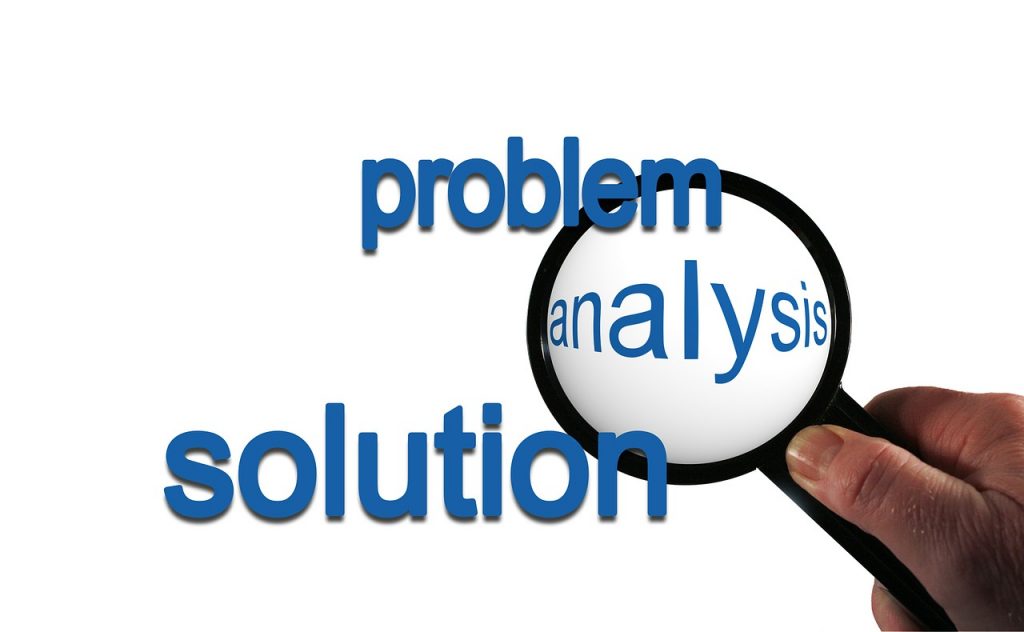How to deal with problems?
What is a Problem?
We face problems every day and are always trying to avoid them or run away from them.
As per the wiki definition “A problem is a situation preventing something from being achieved. The word comes from a Greek word meaning an “obstacle” (something that is in your way). Someone who has a problem must find a way of solving it. The means of solving a problem is called a “solution”.”

We confuse problems with choices, options, and change. For example, when we have to make a choice from two or more available options we consider it as a problem. Whereas a problem is quite more serious that have a great impact on you.
Problems impact us in an emotional, physical and psychological way. We often get so driven into the problem that we forget about our skills and ability to find a solution for it.
There are yet many ways defined for finding a solution to a problem but here we will try to see one of the possible appropriate ways to solve a problem.
How to deal with problems?
When a problem arrives we see it or analyze it from the tip of the iceberg and fail to see the big part beneath. This causes us a prolonged time to find a solution to that problem. This is what we call dealing with a problem at symptoms level or from the tip of the iceberg.

While trying to find a solution at symptoms level we often end up in finding a temporary solution and no permanent solution for the same. We take minimal options and scenarios in consideration and end up finding a solution accordingly.
What we should really do is to find a solution to the problem after analyzing the problem from the root level. We should take some time with the problem and go in depth to find the root cause of the problem.
When we reach there, we find that the tip was directing us towards a different solution and whereas the real solution to the problem is what we have now found after analyzing the root causes of the problem or the big part of the iceberg beneath the sea.

When we adopt this approach towards problems that we face, we find more satisfying and long-lasting solutions. We are more conscious of the decisions we make while approaching the solutions.
Let us see an example for the same:
Consider that you are facing a financial crisis currently. You analyze the problem from the symptom level that is you analyze that due to financial crisis you have been facing huge criticism from society, friends, and family, you have been going through mental stress and at some stage, it results in physical pain.
From this, you decide to take a loan from a bank or borrow some money from friends or relatives to resolve the problem for the current situation. But you do not do root analysis of the problem and end up having a new and bigger financial crisis after a few months or so.
This time you think of taking a different approach towards the solution and you try to do root analysis of the problem. In root analysis, you find that the financial crisis rises because of your mismanagement of the money and excess expenses.
Also, you have a very limited source/sources of income which will not be sufficient for you in near future.

So as a solution to this problem, you decide to cut off some of your unnecessary expenses and try to gain some more skills that may result in getting some more income for you. Thus, after a few months or years, you end up in having a financial stability and overcome the financial crisis which existed months back.
Here we can clearly differentiate the results that were achieved from a different level of analysis. That is when we did symptom level analysis we end up finding a temporary solution and were in the same problem after some time and when we did root level analysis and found solution accordingly, we had a more long-lasting solution.
So the best way to deal with a problem is to deal with them at the root level and not at symptom level.










Hey! Someone in my Myspace group shared this website with
us so I came to give it a look. I’m definitely loving the information.
I’m book-marking and will be tweeting this to my followers!
Wonderful blog and amazing design and style.
Thank you so much for your appreciation.
I am really grateful that you shared my website over your twitter handle.
You can follow Silent Motivations over twitter too.